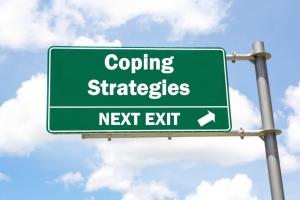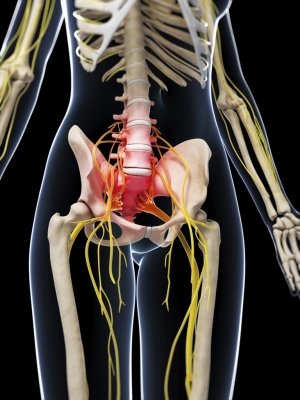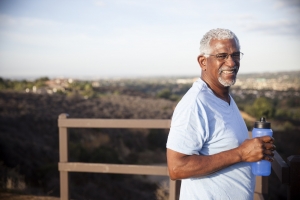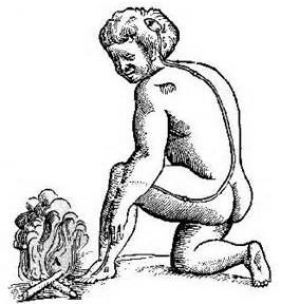Murray J. McAllister, PsyD
Murray J. McAllister, PsyD, is a pain psychologist and consults to health systems on improving pain. He is the editor and founder of the Institute for Chronic Pain (ICP). The ICP is an educational and public policy think tank. In its mission is to lead the field in making pain management more empirically supported, the ICP provides academic quality information on chronic pain that is approachable to patients and their families.
From the time before Socrates in ancient Greece there stood a temple built upon a spring at a location the Greeks would have considered the center of the world. They called the temple, "Delphi". Inscribed on the walls of this holy temple was the simple phrase, “Know Thyself”.
Irritable Bowel Syndrome: A New ICP Content Page
The Institute for Chronic Pain (ICP) is an educational and public policy think tank that brings together thought leaders from around the world to provide scientifically accurate information about chronic pain and its most effective treatments. We endeavor to provide academic-quality information that is easy to read and as such we serve as a scientifically accurate resource to patients and their families, generalist healthcare providers, third-party payers, and public policy analysts. Our aim is to change the culture of how pain is managed -- to foster a culture in which the field of pain management more readily provides treatments with demonstrated effectiveness.
Does Your Pain Clinic Teach Coping?
As we’ve discussed in an earlier post, not all pain clinics are alike. To be sure, all pain clinics provide therapies aimed at reducing pain. Some, however, don’t stop there. They set out to systematically coach patients to cope better with pain that remains chronic.
Chronic Pain Rehabilitation
A central tenet of chronic pain rehabilitation is that what initially caused your pain is often not now the only thing that's maintaining your pain on a chronic course. Let’s unpack this important statement. It’s no accident that healthcare providers commonly refer to chronic pain syndromes as complex chronic pain or complicated chronic pain.
Coping: Ideas that Change Pain
Coping-based healthcare is often misunderstood in society and, as a result, it is commonly neglected by healthcare providers and patients alike. Examples of such care are chronic pain rehabilitation for pain disorders, cardiac rehabilitation for heart disease, psychotherapy for mental health disorders, or diabetic education for diabetes. These therapies are often the last thing that healthcare providers recommend or the last thing people are willing to try, even though they are typically some of the most effective treatments for their respective conditions.
No doubt, the words of this title have been uttered countless times by countless people with chronic pain. In my work in chronic pain rehabilitation, someone tends to say it to me most everyday. It often comes when discussing the effectiveness of chronic pain rehabilitation, which focuses on coaching people how to self-manage pain.
Self-Management
Often in discussions of chronic pain and its treatments, self-management gets neglected as a viable option. It gets forgotten about. Or perhaps it just never comes to mind when patients or providers talk about the ways to successfully manage pain. Instead, stakeholders in the field tend to focus on the use of medications or interventional procedures or surgeries.
Do We Tend to Misunderstand the Nature of Pain?
We live in an interesting time within the field of pain management. We literally have two competing ways of understanding the nature of pain – what it is and how it works and what to do about it.
The ICP Supports the Make Your Day Harder Campaign
Recent data in the Lancet show that as societies become increasingly industrialized around the world, rates of low back pain, migraine, depression, obesity and type 2 diabetes increase (among other conditions). It's an interesting commentary on the social determinants of health.
Overcoming Perfectionism
In the last post, we discussed the nature of perfectionism and the problems associated with it. Specifically, we reviewed how perfectionism is problematic and how perfectionism leads to poor coping with chronic pain. In this post, let’s review some basic ways to begin to overcome perfectionism.











